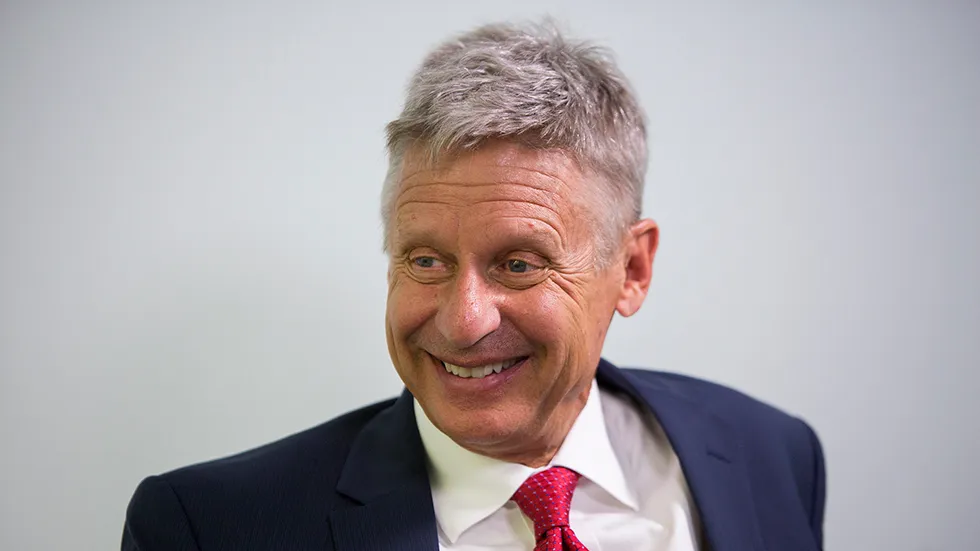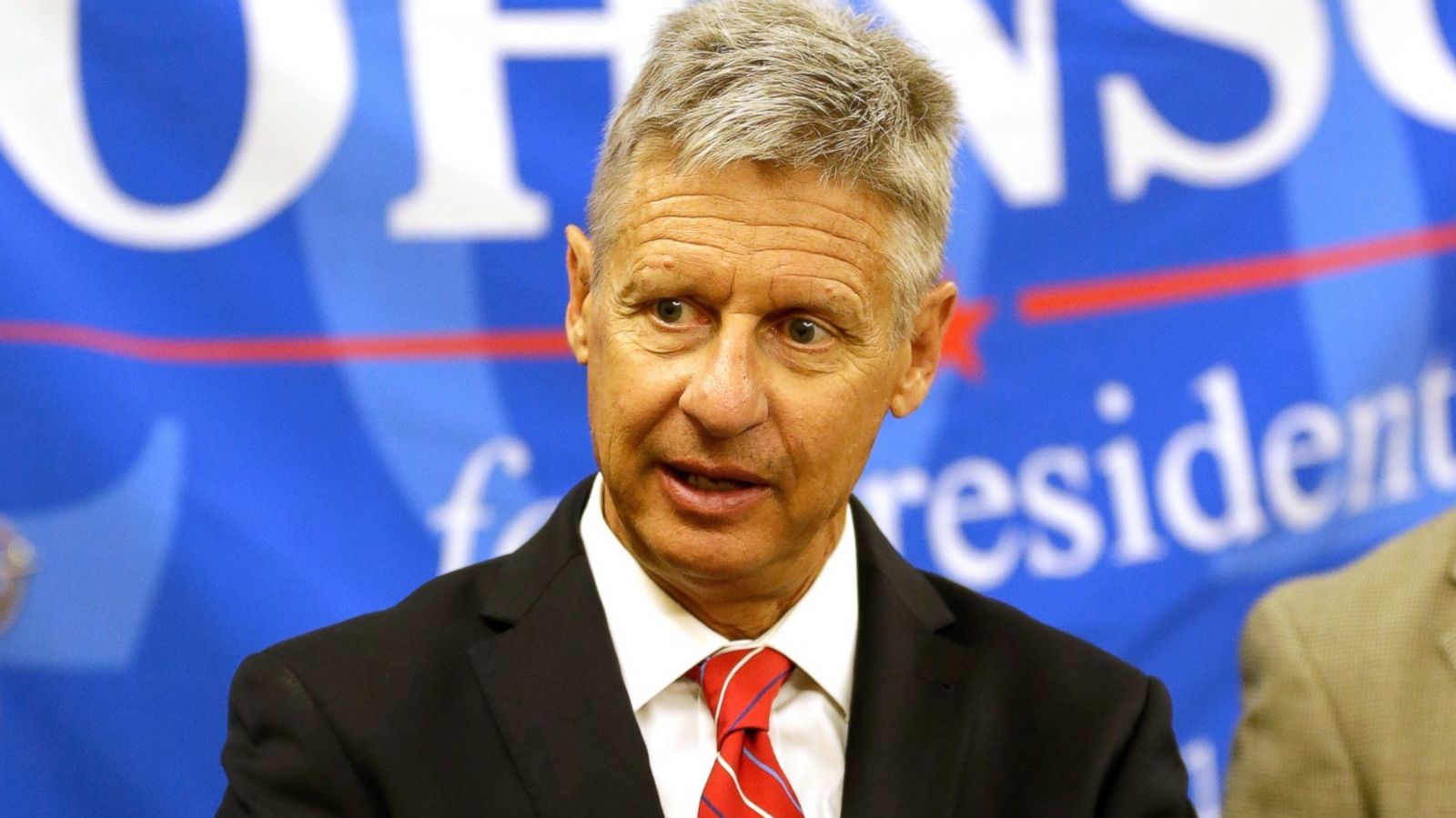Gary Johnson is a name that resonates with libertarian politics, entrepreneurial success, and a unique approach to governance. As a two-term Governor of New Mexico, a two-time presidential candidate, and a successful businessman, Johnson has carved out a distinctive niche in American politics. This article delves into his life, career, political philosophy, and the impact he has had on the libertarian movement and American politics at large.
Early Life and Education
Gary Earl Johnson was born on January 1, 1953, in Minot, North Dakota. He grew up in a middle-class family, with his father working as a public school teacher and his mother as a homemaker. Johnson’s early years were marked by a strong work ethic and a passion for outdoor activities, particularly skiing and mountaineering. These interests would later play a significant role in shaping his entrepreneurial ventures.
Johnson attended the University of New Mexico, where he earned a Bachelor of Science degree in Political Science in 1975. During his college years, Johnson worked various jobs to support himself, including as a handyman and a door-to-door salesman. These experiences instilled in him a deep appreciation for hard work and self-reliance, values that would later define his political philosophy.
Entrepreneurial Success

Before entering politics, Gary Johnson achieved significant success as an entrepreneur. In 1976, he founded Big J Enterprises, a construction company that started as a one-man operation. Johnson’s hands-on approach and relentless work ethic helped the company grow rapidly. By the time he sold the company in 1999, Big J Enterprises had over 1,000 employees and was one of the largest construction companies in New Mexico.
Johnson’s business acumen and ability to manage large-scale projects earned him a reputation as a competent and efficient leader. These qualities would later translate into his political career, where he emphasized fiscal responsibility and efficient government.
Political Career: Governor of New Mexico
Gary Johnson’s political career began in 1994 when he ran for Governor of New Mexico as a Republican. His campaign focused on reducing government spending, cutting taxes, and implementing business-like efficiency in government operations. Johnson’s outsider status and business background resonated with voters, and he won the election with 50% of the vote.
During his first term, Johnson made good on his campaign promises by vetoing over 200 bills, many of which he deemed wasteful or unnecessary. He also implemented significant budget cuts, reducing state spending by 10% and eliminating over 1,200 state jobs. Despite facing opposition from both Democrats and Republicans, Johnson’s efforts resulted in a balanced budget and a surplus by the end of his first term.
Johnson’s second term, which began in 1998, was marked by continued fiscal conservatism and a focus on education reform. He championed school choice and voucher programs, arguing that competition would improve the quality of education. Johnson also advocated for drug policy reform, becoming one of the first prominent politicians to call for the decriminalization of marijuana and a shift towards treating drug addiction as a public health issue rather than a criminal one.
Presidential Campaigns
After leaving office in 2003, Gary Johnson turned his attention to national politics. In 2012, he sought the Republican nomination for President of the United States. However, his libertarian-leaning views, particularly on drug policy and social issues, made him a controversial figure within the party. After failing to gain traction in the Republican primaries, Johnson switched his affiliation to the Libertarian Party and became their presidential nominee.
Johnson’s 2012 campaign focused on reducing the national debt, ending the war on drugs, and promoting individual liberty. He advocated for a non-interventionist foreign policy, arguing that the United States should avoid unnecessary military engagements. Johnson’s campaign gained some momentum, particularly among young voters and libertarians, but he ultimately received just under 1% of the popular vote.
In 2016, Johnson ran for president again as the Libertarian Party nominee. This time, his campaign gained more attention, partly due to the unpopularity of the major party candidates, Hillary Clinton and Donald Trump. Johnson’s running mate, former Massachusetts Governor William Weld, brought additional credibility to the ticket. The Johnson-Weld campaign focused on fiscal responsibility, civil liberties, and a non-interventionist foreign policy.
Despite increased media coverage and a series of high-profile interviews, Johnson’s campaign faced challenges. His infamous “Aleppo moment,” where he appeared unfamiliar with the Syrian city of Aleppo during a televised interview, became a focal point for critics. Nevertheless, Johnson received over 4 million votes, representing 3.3% of the popular vote, the highest percentage for a Libertarian presidential candidate since 1980.
Political Philosophy and Impact
Gary Johnson’s political philosophy is rooted in libertarianism, which emphasizes individual liberty, limited government, and free markets. He is a strong advocate for personal freedom, often stating that individuals should be free to make their own choices as long as they do not harm others. This philosophy extends to his views on social issues, where he supports marriage equality, reproductive rights, and the decriminalization of drugs.
On economic issues, Johnson is a fiscal conservative who believes in reducing government spending, lowering taxes, and eliminating unnecessary regulations. He has consistently argued that a smaller government is more efficient and better suited to protect individual rights. Johnson’s emphasis on fiscal responsibility has earned him praise from libertarians and fiscal conservatives alike.
Johnson’s impact on American politics extends beyond his electoral campaigns. By bringing libertarian ideas into the mainstream, he has helped to shift the political discourse on issues such as drug policy, government spending, and individual liberty. His campaigns have also highlighted the growing dissatisfaction with the two-party system and the desire for alternative political options.
Post-Political Career and Legacy
Since his 2016 presidential campaign, Gary Johnson has remained active in public life. He continues to advocate for libertarian principles through speaking engagements, media appearances, and his work with various organizations. Johnson is also involved in the cannabis industry, leveraging his experience and advocacy for drug policy reform.
Johnson’s legacy is one of challenging the status quo and pushing for a more limited and efficient government. While his presidential campaigns did not result in electoral victory, they succeeded in raising awareness of libertarian ideas and providing a platform for alternative voices in American politics. Johnson’s emphasis on individual liberty, fiscal responsibility, and pragmatic governance continues to inspire those who seek a different approach to politics.
Conclusion
Gary Johnson’s journey from a successful entrepreneur to a two-term governor and two-time presidential candidate is a testament to his resilience, determination, and commitment to his principles. His unique blend of fiscal conservatism and social liberalism has made him a prominent figure in the libertarian movement and a voice for those who seek an alternative to the traditional two-party system.
As the political landscape continues to evolve, Gary Johnson’s contributions to the discourse on individual liberty, limited government, and pragmatic governance will remain relevant. Whether through his policy initiatives, political campaigns, or advocacy work, Johnson has left an indelible mark on American politics and will be remembered as a champion of libertarian ideals.


[…] the ever-evolving world of social media influencers, content creators, and digital personalities, Kitty Menendez has emerged as a name that […]